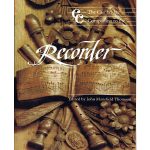Dear Recorder Colleagues,
I have been asked by many students and colleagues around the world about important recorder books that they should have http://www.achaten-suisse.com/ at home.
So I will publish a series of posts in each I shall describe a book which is certainly an essential (well, by my humble opinnion).
Each post shall contain details about the book, a list of its contents, and a direct link to where you may purchase it in a very good price – (as a community service…)
And so here we go:

One of my favorite recorder books of all time, is, without a doubt, the recorder book form “The Cambridge Companion” series
This book offers a complete introduction to the history of the recorder.
Contents:
Foreword by Daniel Brüggen
The recorder in the Middle Ages and the Renaissance by Howard Mayer Brown
The recorder’s Medieval and Renaissance repertoire: a commentary by Anthony Rowland-Jones
The baroque recorder sonata by Anthony Rowland-Jones
The baroque chamber music repertoire Anthony Rowland-Jones
The orchestral recorder by Adrienne Simpson
The eighteenth-century recorder concerto by David Lasocki and Anthony Rowland-Jones
Instruction books and methods for the recorder c.1500 to the present day by David Lasocki
The recorder revival i: the friendship of Bernard Shaw and Arnold Dolmetsch by J. M. Thomson
The recorder revival ii: the twentieth century and its repertoire by Eve O’Kelly
Professional recorder players i: pre-twentieth century by David Lasocki
Professional recorder players (and their instruments) ii: the twentieth century by Eve O’Kelly
The recorder in education by Eve O’Kelly
Facsimiles and editing by Clifford Bartlett
A guide to further reading by Anthony Rowland-Jones.
This book is written in such an engaging manner, that it can be read through as a novel. I found myself reading it through vaginosisbacteriana.org from cover to cover in a few days and still enjoy coming back to it from time to time.

